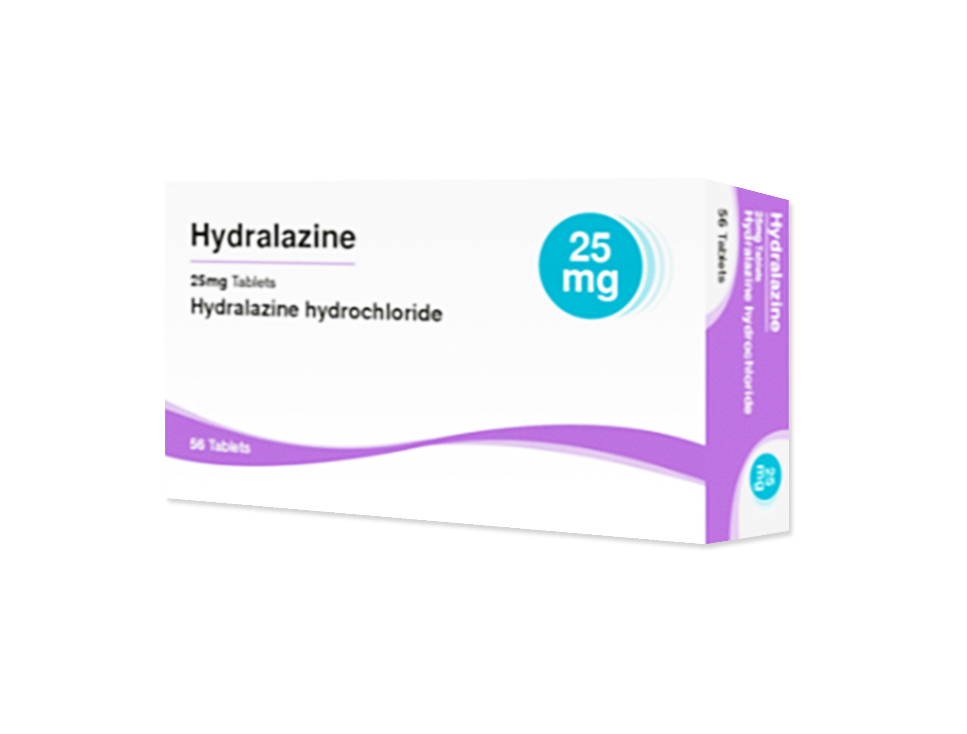Information about Apresoline (Hydralazine)
Apresoline, which contains the active ingredient Hydralazine, is primarily used to manage high blood pressure (hypertension). It can also be used in combination with other medications to treat heart failure, particularly in cases of heart failure with reduced ejection fraction.
Hydralazine works by relaxing the blood vessels so that blood can flow more easily, thereby lowering blood pressure. The active ingredient in Apresoline, a direct-acting vasodilator that specifically targets the arteries to reduce blood pressure.
Product Highlights
- Belongs to a group of medicines called vasodilators
- Available in form of injection.
- Typically starts working within 1 hour of ingestion.
- The blood pressure-lowering effect lasts for about 4-6 hours.
- Often used with other antihypertensive drugs, especially in complex cases of hypertension or heart failure.
Key Ingredients
Key Benefits
- Helps to lower high blood pressure, reducing the risk of complications such as stroke, heart attack, and kidney problems.
- In heart failure, Hydralazine can improve symptoms and quality of life by reducing the workload on the heart.
- Can be used alongside other medications for a more comprehensive approach to managing hypertension and heart failure.
Direction For Use
- Take Apresoline exactly as prescribed by your healthcare provider. Normally 1st dose is usually 5 to 10mg. Another dose is depending on situation.
- The dosage will be tailored to your condition and response to treatment. It is important to follow the prescribed dosage schedule carefully.
- Apresoline can be taken with or without food. If it causes stomach upset, try taking it with food.
- Regularly monitor blood pressure and follow up with your healthcare provider to adjust the dosage as needed.
- Take the medication at the same times each day to maintain consistent blood levels.
Safety Concern
- Rapid or excessive lowering of blood pressure can lead to dizziness, fainting, or orthostatic hypotension (a sudden drop in blood pressure when standing up). Monitor for symptoms and report any severe reactions to your healthcare provider.
- Long-term use of Hydralazine may cause a lupus-like syndrome in some individuals, which can include symptoms such as joint pain, rash, and fever.
- Hydralazine can cause fluid retention, which may lead to swelling (edema). Monitor for signs of swelling and inform your doctor.
- Hydralazine can interact with other medications, including other antihypertensives and certain medications used for heart conditions. Inform your healthcare provider about all the medications you are taking.
Avoid Apresoline (Hydralazine) If
- You have a known allergy or hypersensitivity to Hydralazine or any component of the medication.
- You have severe coronary artery disease or other serious heart conditions where rapid changes in blood pressure could be harmful.
- You have a history of systemic lupus erythematosus (SLE) or a lupus-like syndrome induced by Hydralazine.
- Severe kidney or liver impairment, as these conditions can affect how the medication is processed and may require dose adjustments or alternative treatments.





